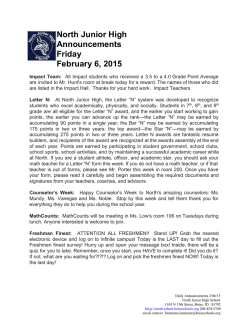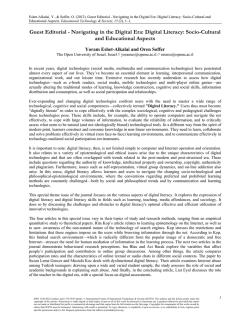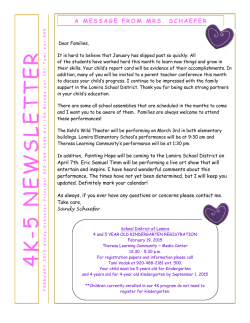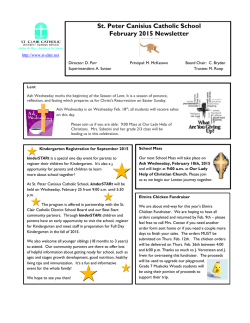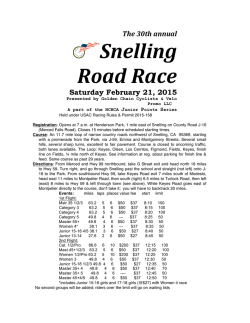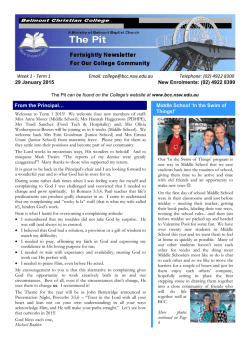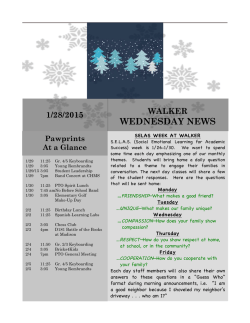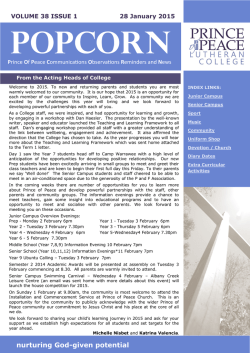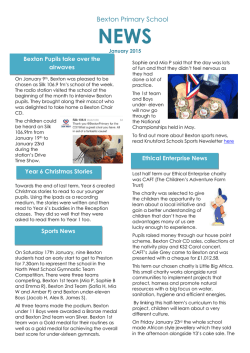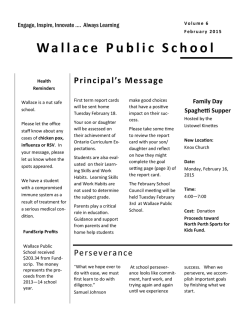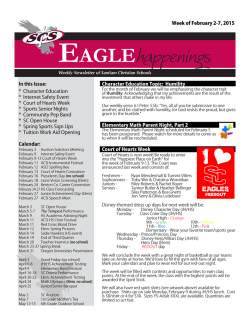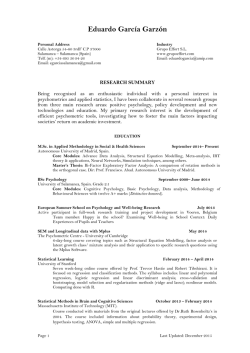
Junior Kindergarten Classrooms
CPS Cambridge Public Schools Junior Kindergarten Classrooms Children may attend Junior Kindergarten (JK) if they turn 5 years old between September 1 and March 31 of their JK year. They will spend a second year in Kindergarten before entering first grade at age 6. Most schools have one stand-alone classroom for Junior Kindergartners; many also have one or more mixed JK/K classrooms. The Junior Kindergarten Classroom: • recognizes the central role of play in the young child’s learning and promotes intellectual development by facilitating children’s learning through a variety of play experiences. • organizes curricula primarily through projects or thematic units that integrate different curriculum areas. • recognizes that children come to school with different skills and experiences, and meets their individual needs to facilitate their continued growth. • establishes a classroom community in which children form strong relationships with each other and with adults—a community that fosters collaboration and independence. The curriculum in Junior Kindergarten classrooms provides developmentally appropriate learning experiences in seven areas: Personal and Social development; Language and Literacy; Mathematical Thinking; Scientific Thinking; Social Studies; Physical Development; and The Arts. Personal and Social Development: Social-emotional learning is at the heart of the JK classroom and is an important focus throughout the day. Teachers utilize the Responsive Classroom curriculum and other resources to build a caring and responsible learning community. Language & Literacy: The Junior Kindergarten Program focuses on oral language development as the foundation for literacy. A Balanced Literacy program supports early literacy development through authentic and engaging experiences such as shared reading, read-aloud, storytelling/storyacting, and interactive drawing and writing. Mathematical Thinking: Early math skills development begins with the SRA Real Math: Building Blocks program. As described by its authors, this program “embeds mathematical learning in daily activities--from designated math activities to circle and story time.” This curriculum “provides children with a foundation in mathematical thinking and is aligned with state and national standards in the following areas: number and operations, geometry, measurement, patterns and algebra and data analysis and classification.” (Building Blocks Pre-K, MHEonline.com). Scientific Thinking: Two units in The Young Scientist Series—Discovering Nature and Exploring Water—support the development of science inquiry skills and promote children’s interest in the world around them through a variety of indoor and outdoor experiences Social Studies: Junior Kindergarten social studies activities emphasize social and cultural understanding. Children learn about similarities and differences between themselves and others; family roles and relationships; community members’ jobs; and the role of rules in the classroom community. Physical Development: Active and engaged young learners build fine and gross motor skills throughout the day. In addition to physical education classes, Junior Kindergartners refine their gross motor skills through active outdoor experiences as well as classroom movement activities. Children develop fine motor skills as they use manipulative materials, writing tools and engage in various classroom projects. The Arts: The Explorations in Art curriculum provides many experiences with materials, processes and ideas which support children’s creativity, problem solving and learning across the curriculum. Singing plays a regular role in the classroom. For more information, please visit the CPS website at www.cpsd.us.
© Copyright 2026
